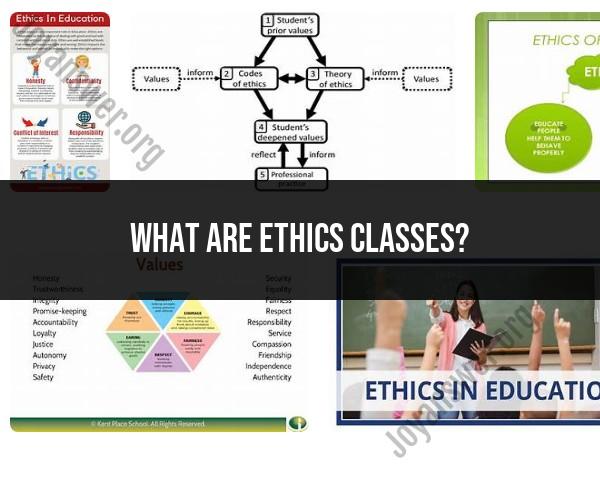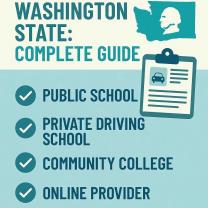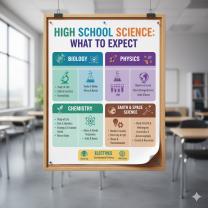What are ethics classes?
Ethics classes are educational courses designed to explore and discuss moral principles, values, and concepts. These classes aim to foster critical thinking, moral reasoning, and ethical decision-making among students. The purpose of ethics classes can vary depending on the educational level, institution, and specific objectives. However, some common goals include:
Developing Ethical Awareness: Ethics classes help individuals become more conscious of ethical issues present in society, professions, or personal lives.
Promoting Critical Thinking: They encourage students to analyze, evaluate, and question moral dilemmas, theories, and ethical frameworks.
Cultivating Moral Reasoning: These classes aim to develop the ability to navigate complex ethical situations by applying various ethical theories and principles.
Encouraging Ethical Decision-Making: Students learn how to make sound ethical decisions by considering different perspectives, consequences, and ethical frameworks.
The curriculum of ethics classes typically covers a wide range of topics, including:
Ethical Theories: Utilitarianism, deontology, virtue ethics, etc.
Applied Ethics: Bioethics, environmental ethics, business ethics, etc.
Ethics in Professions: Addressing ethical issues specific to various fields like medicine, law, engineering, and journalism.
Case Studies: Analyzing real-life ethical dilemmas to apply theoretical knowledge.
Ethical Leadership: Understanding the role of ethics in leadership and decision-making.
Cultural and Global Ethics: Exploring how ethics differ across cultures and addressing global ethical challenges.
Ethics classes can be part of various academic disciplines, including philosophy, law, psychology, business, and more. They provide a foundation for individuals to navigate moral complexities in personal, professional, and societal contexts.
What subjects or topics are covered in ethics classes?
Ethics classes cover a wide range of subjects and topics, but they generally focus on helping students develop their critical thinking skills and moral reasoning abilities. Here are some of the common subjects and topics you might encounter in an ethics class:
Foundational Concepts in Ethics:
- Nature of Ethics: What is ethics? Why is it important? What are the different ethical theories (e.g., utilitarianism, deontology, virtue ethics)?
- Moral Reasoning: How do we make moral decisions? What are the different steps involved in ethical decision-making?
- Justice and Fairness: What is justice? What does it mean to be fair? How can we ensure that everyone is treated fairly?
Contemporary Issues in Ethics:
- Business Ethics: What are the ethical obligations of businesses? How can businesses balance their profits with their social responsibility?
- Bioethics: What are the ethical challenges posed by advances in medicine and biotechnology? How should we make decisions about things like genetic engineering, cloning, and end-of-life care?
- Environmental Ethics: What are our ethical obligations to the environment? How can we balance our needs with the needs of future generations?
- Technology Ethics: What are the ethical implications of emerging technologies like artificial intelligence and social media?
Other Potential Topics:
- Professional Ethics: What are the ethical codes and obligations specific to different professions, such as medicine, law, journalism, and engineering?
- Global Ethics: How do ethical issues differ across cultures and borders? What are some of the challenges of global justice?
- Personal Ethics: How can we develop our own personal ethical framework for making decisions in everyday life?
Discussion Activities:
- Case studies: Analyzing real-world ethical dilemmas and applying ethical frameworks to propose solutions.
- Role-playing: Simulating ethical scenarios to experience different perspectives and practice ethical decision-making.
- Debates: Discussing opposing viewpoints on ethical issues to develop critical thinking and communication skills.
It's important to remember that ethics is a complex and ever-evolving field. There are no easy answers to many of the questions that ethics classes raise. But by studying ethics, you can learn to think critically about moral issues, develop your own ethical principles, and make informed decisions about the kind of person you want to be.













